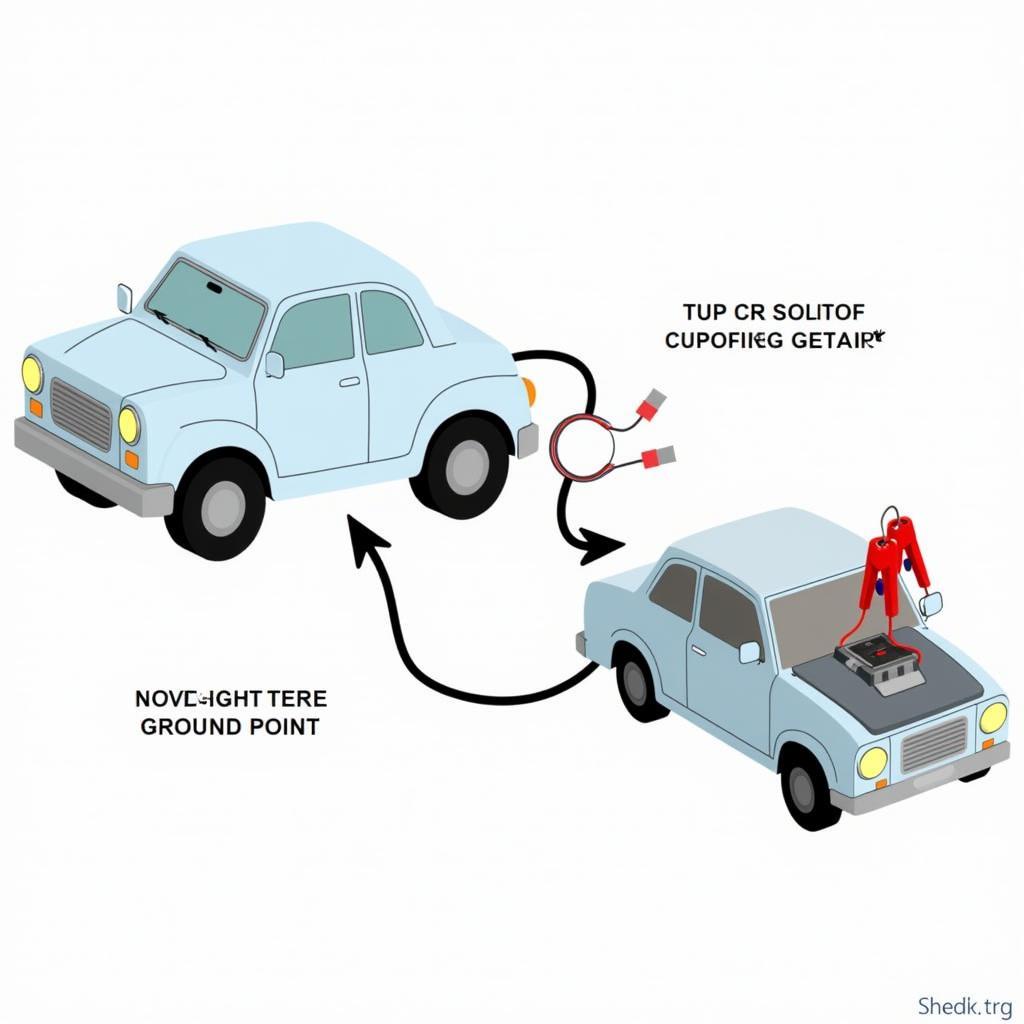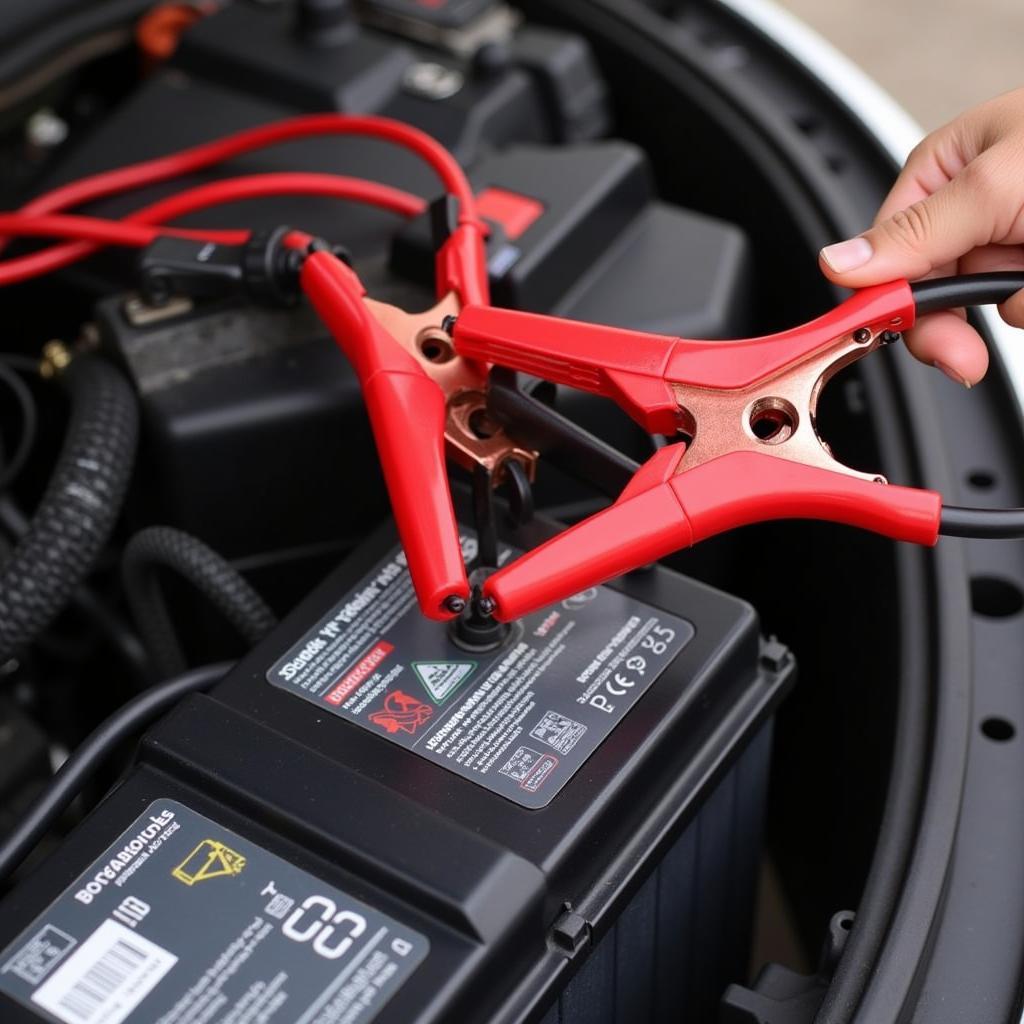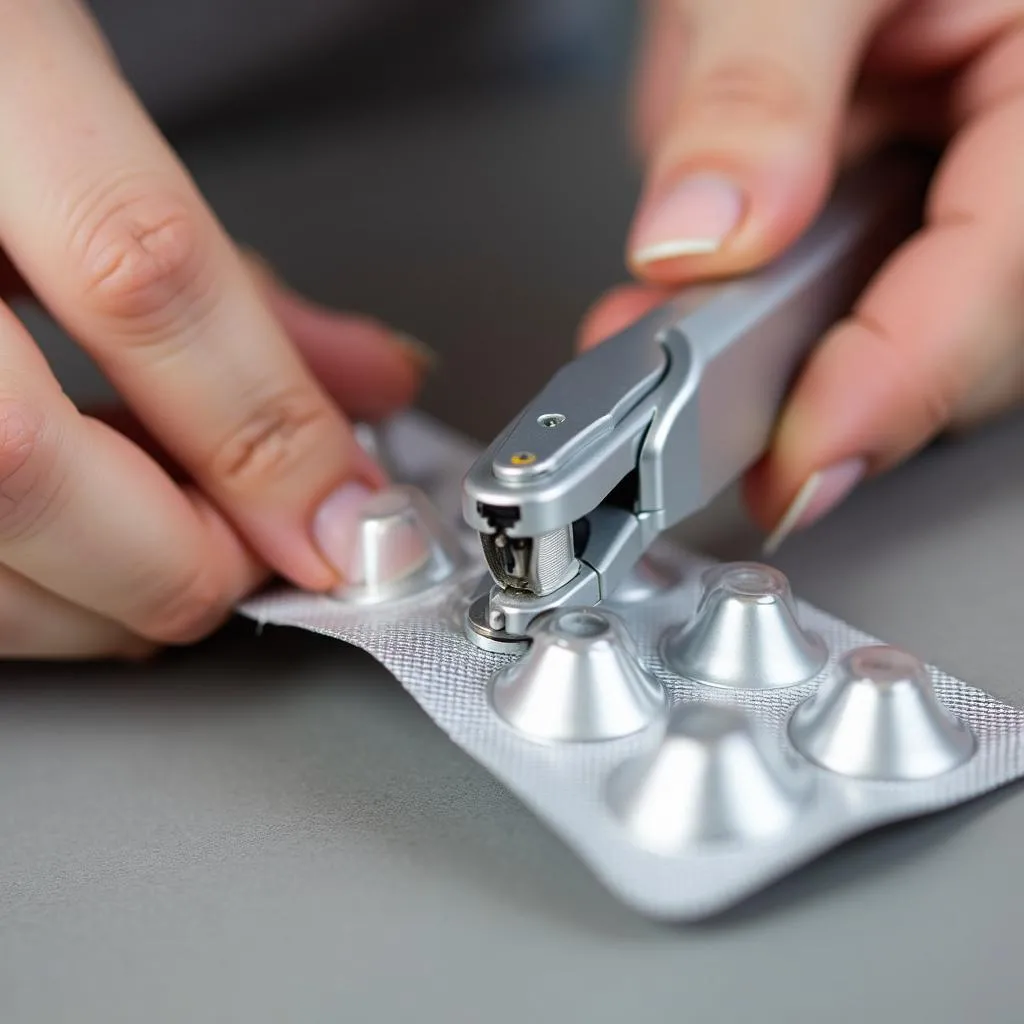A dead car battery is a common culprit when your car won’t start. Experiencing “car battery down not starting” can be frustrating, especially when you’re in a hurry. This comprehensive guide will walk you through the causes, symptoms, and solutions for a car that won’t start due to a dead battery, empowering you with the knowledge to get back on the road quickly and safely.
Why is My Car Battery Down and Not Starting?
Several factors can contribute to a dead car battery. Understanding these causes is the first step towards resolving the issue. Some common reasons include:
- Leaving lights or accessories on: Accidentally leaving your headlights, interior lights, or radio on can drain your battery overnight, leading to a “car battery down not starting” situation.
- Extreme temperatures: Both extreme heat and cold can significantly impact battery performance and lifespan. Cold weather can slow down the chemical reactions within the battery, reducing its ability to deliver power. Excessive heat can cause the battery fluid to evaporate, leading to internal damage.
- Old age: Like any component, car batteries have a limited lifespan. Over time, the battery’s ability to hold a charge diminishes, eventually leading to failure.
- Parasitic drain: A parasitic drain occurs when a component in your car continues to draw power even when the ignition is off. This can be caused by faulty wiring, a malfunctioning alternator, or even a faulty car amplifier, resulting in parasitic draw. You can read more about this in our article on car amplifier parasitic draw.
- Short trips: Short trips don’t give the alternator enough time to fully recharge the battery, especially if you’re running power-hungry accessories like heated seats or the defroster.
- Corroded terminals: Corrosion on the battery terminals can disrupt the flow of electricity, preventing the battery from starting the car.
Signs That a Car Battery is Dead
Recognizing the signs of a dying battery can help you avoid being stranded. Here are some common indicators:
- Slow engine crank: If the engine cranks slowly or struggles to turn over, it’s a strong indication of a weak battery.
- Dim headlights: Headlights that are dimmer than usual, especially when the engine is idling, suggest a low battery charge. For more insights on dead battery symptoms, check out our article on signs that a car battery is dead.
- Clicking sound when turning the key: A rapid clicking sound when you turn the key is often a sign that the battery doesn’t have enough power to engage the starter motor.
- Dashboard warning lights: The battery or check engine light may illuminate, indicating a potential problem with the charging system.
- Electrical issues: Problems with power windows, radio, or other electrical accessories can be a sign of a failing battery.
How to Jump Start a Car with a Dead Battery
If your car battery is dead, jump-starting it can be a temporary solution to get you back on the road. However, it’s important to do it safely and correctly:
- Gather the necessary equipment: You’ll need jumper cables and another vehicle with a working battery.
- Position the vehicles: Park the two vehicles close enough so the jumper cables can reach, but ensure they are not touching.
- Connect the positive (+) cables: Attach one end of the red (+) cable to the positive (+) terminal of the dead battery. Connect the other end of the red (+) cable to the positive (+) terminal of the good battery.
- Connect the negative (-) cables: Attach one end of the black (-) cable to the negative (-) terminal of the good battery. Connect the other end of the black (-) cable to a clean, unpainted metal surface on the car with the dead battery, away from the battery itself.
- Start the working vehicle: Let the engine run for a few minutes to charge the dead battery.
- Start the stalled vehicle: Attempt to start the car with the dead battery. If it starts, let it run for at least 15-20 minutes to allow the alternator to recharge the battery.
- Disconnect the cables: Remove the cables in the reverse order of how they were connected.
If you own a Dodge Grand Caravan and are experiencing battery issues, our article on 2014 Dodge Grand Caravan battery problems may provide specific insights.
 Jump Starting a Car with Jumper Cables
Jump Starting a Car with Jumper Cables
Preventing a Dead Car Battery
Taking proactive steps can help prevent future “car battery down not starting” situations:
- Regularly check your battery: Inspect the battery terminals for corrosion and clean them as needed. If you frequently find your truck battery draining, check our article for troubleshooting tips.
- Turn off all accessories: Ensure all lights, radio, and other accessories are turned off when you exit your vehicle.
- Limit short trips: Try to combine errands or take longer routes to allow the alternator to fully recharge the battery.
- Replace your battery regularly: Car batteries typically last 3-5 years. Consider replacing your battery before it fails completely. More information on battery failure can be found in our article on battery failure car.
Conclusion
A “car battery down not starting” scenario can be inconvenient, but understanding the causes, symptoms, and solutions can help you address the issue effectively. By following the preventive measures outlined in this guide, you can minimize the chances of experiencing a dead battery in the future and keep your car running smoothly.
FAQ
- How long does a car battery last? Most car batteries last between 3 and 5 years.
- Can I jump-start my car myself? Yes, but it’s important to follow safety precautions and connect the jumper cables correctly.
- What causes a car battery to drain overnight? Leaving lights or accessories on, a parasitic drain, or an old battery can cause it to drain overnight.
- How can I tell if my car battery is bad? Signs include slow engine crank, dim headlights, clicking sounds, and dashboard warning lights.
- How do I prevent my car battery from dying? Regularly check and clean the battery terminals, turn off accessories, limit short trips, and replace the battery every 3-5 years.
- Is it safe to drive with a low battery? It’s not recommended, as it can lead to further issues and potentially leave you stranded.
- What should I do if my car battery keeps dying? Have a mechanic inspect the charging system to identify the underlying cause.


